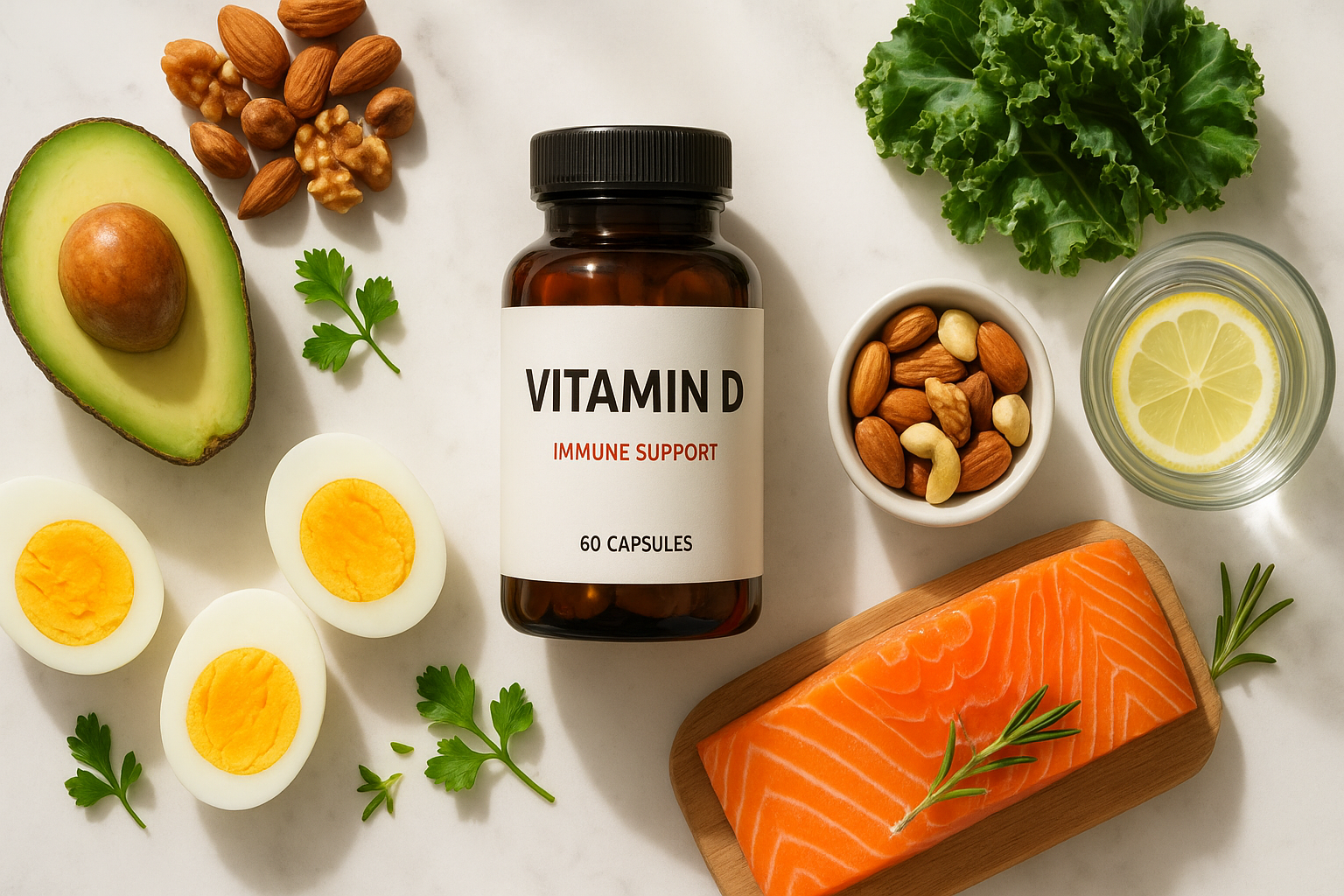
The ketogenic lifestyle is often celebrated for its role in weight management, mental clarity, and energy balance. But one area that deserves equal attention is how keto impacts your body’s immune defenses. Because immune strength relies on nutrition, and vitamin D is one of the most influential nutrients for immune resilience, paying attention to this “sunshine vitamin” is essential when following a low-carb, high-fat diet.
The Link Between Keto and Immunity
Your immune system is a complex network of cells, tissues, and signaling pathways. For it to function properly, it requires adequate nutrition. When you switch to keto, your diet undergoes a dramatic shift—carbohydrate-heavy foods like grains, legumes, and fortified cereals are removed. While this can reduce inflammation and stabilize blood sugar, it also reduces some of the usual dietary sources of vitamins and minerals. That’s where vitamin D steps in as an important focus.
A keto diet often emphasizes nutrient-dense fats and proteins, but unless you deliberately include vitamin D–rich foods, it’s easy to fall short. Unlike water-soluble vitamins, vitamin D doesn’t circulate freely—it must be absorbed and stored with the help of dietary fat. The good news? Keto’s high-fat intake actually creates an ideal environment for vitamin D absorption, provided you consume it from the right sources.
Vitamin D: More Than Just Bone Health
Vitamin D is widely recognized for keeping bones strong, but its role goes far beyond skeletal support. For those living a keto lifestyle, vitamin D contributes in several vital ways:
- Immune Cell Activation – Vitamin D helps “train” white blood cells like macrophages and T-cells to identify and neutralize invaders.
- Inflammation Balance – Low vitamin D levels are often associated with chronic inflammation. Adequate intake helps regulate inflammatory responses, a benefit that pairs well with keto’s anti-inflammatory potential.
- Hormonal Support – Vitamin D acts like a hormone in the body, influencing mood, metabolism, and insulin sensitivity—all areas that keto followers monitor closely.
- Energy and Performance – A deficiency can lead to fatigue and muscle weakness, which can be mistaken for the “keto flu” in new dieters.
Why Keto Followers Should Pay Extra Attention
There are a few reasons people on keto may want to prioritize vitamin D more than the average person:
- Reduced intake of fortified foods – Most mass-market vitamin D sources are fortified breads, juices, or cereals, which aren’t keto-friendly.
- Limited dairy consumption – Many keto followers avoid milk because of its natural sugar (lactose), missing out on fortified dairy options.
- Seasonal lifestyle factors – If you live in northern regions or spend much of your day indoors, you’re less likely to synthesize enough vitamin D from sunlight.
- Body composition changes – Since vitamin D is fat-soluble, significant weight loss or shifts in body fat can influence how the vitamin is stored and released.
Keto-Friendly Sources of Vitamin D
Fortunately, there are several ways to meet your vitamin D needs without breaking ketosis:
- Fatty Fish: Salmon, tuna, and sardines provide both vitamin D and omega-3 fatty acids, supporting cardiovascular and brain health alongside immunity.
- Egg Yolks: Pasture-raised or omega-3 enriched eggs are especially beneficial for boosting vitamin D naturally.
- Mushrooms: When exposed to UV light, certain mushrooms can produce vitamin D, making them one of the few plant-based sources suitable for keto.
- Supplements: Vitamin D3 capsules or drops are widely available and pair well with meals rich in healthy fats for better absorption.
Lifestyle Habits That Enhance Vitamin D Benefits
Nutrition is just one piece of the puzzle. To truly maximize vitamin D’s immune-boosting power on keto, consider these lifestyle adjustments:
- Get Sunlight Wisely – Aim for 10–20 minutes of midday sun exposure a few times per week, depending on skin tone and climate.
- Pair Vitamin D with Magnesium – Magnesium helps activate vitamin D in the body. Nuts, seeds, and leafy greens—keto staples—are great magnesium sources.
- Prioritize Gut Health – A balanced gut microbiome influences how vitamins are absorbed and utilized. Incorporating probiotic-rich, keto-friendly foods like sauerkraut and kefir can support this.
- Stay Consistent Year-Round – Don’t only focus on vitamin D during winter months. Maintaining steady levels ensures your immune system stays ready no matter the season.
Signs You May Need More Vitamin D
Sometimes, the body sends signals when it isn’t getting enough vitamin D. Common signs include:
- Frequent colds or slower recovery from infections
- Muscle aches or weakness
- Low mood or seasonal depression
- Fatigue that persists despite adequate rest
- Brittle bones or unexplained aches
If you notice these symptoms while on keto, it may be wise to check your vitamin D levels through a simple blood test.
Building a Keto Immune Wellness Plan
To thrive on keto and strengthen your immune system, think of vitamin D as part of a bigger strategy. Pairing it with other immune-supporting nutrients—like zinc, selenium, and vitamin C—creates a more complete defense system. Hydration, quality sleep, and stress management also amplify the benefits of vitamin D and keto combined.
Conclusion
Following a ketogenic diet has many health advantages, but optimal immunity depends on more than just cutting carbs. Vitamin D plays a powerful role in helping your body resist infections, regulate inflammation, and stay energized. By combining keto-friendly vitamin D sources, thoughtful supplementation, and healthy lifestyle habits, you create a stronger foundation for both your immune system and your overall well-being.


